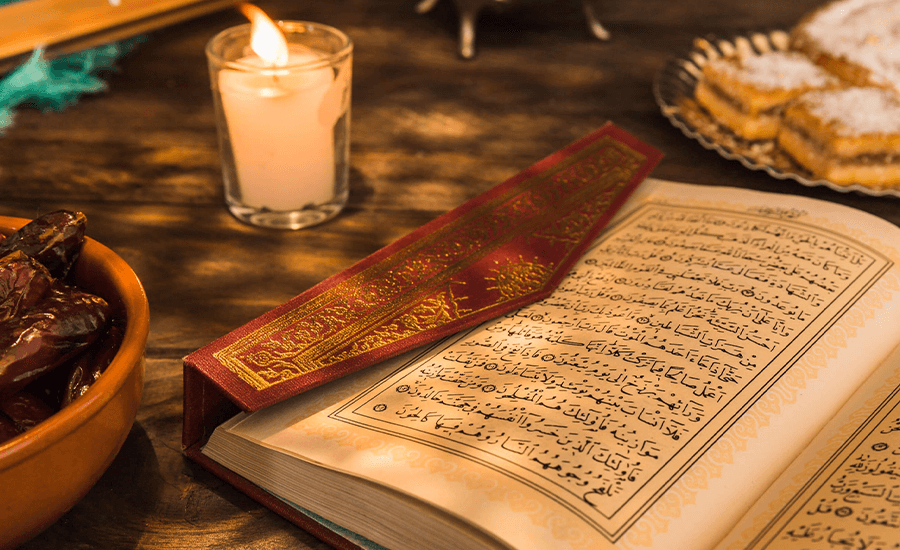
Islam is one of the world’s largest religions, with over 1.9 billion followers across the globe. For someone just beginning their journey, Islam may seem vast and complex, but at its core, it’s a faith rooted in peace, submission to God, and a balanced way of life. The Arabic word Islam itself means “submission” or “surrender” to the will of Allah (God). A Muslim, therefore, is one who submits to God’s guidance.
This guide is designed for beginners exploring Islam—whether out of curiosity, academic interest, or personal spiritual awakening. You’ll find explanations of the faith’s history, its core beliefs, daily practices, and how you can begin your own journey into understanding Islam more deeply.
Identifying Islam for beginners
Islam comes from the Arabic root S-L-M, which is related to peace, safety, and submission. A fundamental idea in Islam is that true peace can only be achieved by surrendering to God’s will. This surrender isn’t blind obedience but a conscious choice to align one’s life with divine wisdom.
Islam began in the 7th century CE in Mecca, in modern-day Saudi Arabia. The Prophet Muhammad (peace be upon him), regarded as the final messenger of God, received divine revelations that later became the Qur’an. Unlike being a completely new faith, Islam views itself as the continuation and completion of previous Abrahamic religions, including Judaism and Christianity.
Key Beliefs Every Muslim Holds
Every Muslim shares certain foundational beliefs known as the Articles of Faith. These include belief in:
- Allah (God) – The one and only God.
- Angels – Created beings who serve God’s commands.
- Divine Books – Scriptures sent to previous prophets, with the Qur’an as the final book.
- Prophets – Messengers chosen by God, such as Abraham, Moses, Jesus, and Muhammad.
- Day of Judgment – The ultimate accountability for one’s deeds.
- Divine Decree (Qadar) – The belief that God’s wisdom governs all aspects of life.
Understanding the Core Foundations
These core foundations serve as the pillars of Islamic faith, guiding how Muslims believe, worship, and live their lives.
The Concept of Tawhid (Oneness of God)
At the heart of Islam is Tawhid, the belief in the absolute oneness of God. This concept rejects any form of idolatry, polytheism, or association with God. For beginners, understanding Tawhid is crucial, as it forms the foundation of Islamic worship, ethics, and worldview.
The Role of Prophets in Islam
Prophets serve as guides for humanity, delivering God’s message and demonstrating how to live it. From Adam to Muhammad, prophets embody the values of patience, compassion, and justice. Muslims believe that Muhammad is the last and final prophet, sealing the line of messengers.
The Significance of Angels and Divine Books
In Islam, angels are messengers of God who execute divine commands. Among them, Angel Jibreel (Gabriel) played a central role in delivering the Qur’an to Prophet Muhammad. Likewise, divine scriptures—such as the Torah, Psalms, Gospel, and Qur’an—serve as guidance for humanity, though Muslims hold that the Qur’an remains unaltered and preserved.
The Five Pillars of Islam Explained

The Five Pillars of Islam are the practical framework of Muslim life. For beginners, these pillars act as the roadmap to faith and practice.
1. Shahada: The Declaration of Faith
The Shahada is the testimony that defines a Muslim: “There is no god but Allah, and Muhammad is His Messenger.” It represents both belief and commitment.
2. Salah: The Importance of Daily Prayers
Muslims pray five times daily, aligning themselves spiritually throughout the day. Prayer isn’t just ritual—it’s a direct connection with God.
3. Zakat: Charity and Social Responsibility
Zakat, or obligatory charity, emphasizes compassion and justice. Muslims donate a portion of their wealth annually to help those in need, ensuring social balance.
4. Sawm: Fasting During Ramadan
Fasting in the holy month of Ramadan is more than abstaining from food—it’s a spiritual cleanse, encouraging self-control and empathy for the less fortunate.
5. Hajj: The Pilgrimage to Mecca
For those able, pilgrimage to Mecca is a once-in-a-lifetime spiritual journey, symbolizing unity and equality before God.
Common Misconceptions About Islam
To better understand Islam, it’s important to clear up some common misconceptions that often create confusion.
Islam and Peace
One of the most misunderstood aspects of Islam is its relation to peace. Despite misconceptions, Islam literally means “peace through submission to God.” The Qur’an condemns injustice and violence, while promoting harmony, justice, and compassion.
Women’s Role in Islam
Contrary to stereotypes, Islam granted women rights to property, education, and inheritance over 1,400 years ago. Women in Islam have historically been scholars, business leaders, and educators. Cultural practices that oppress women are not rooted in Islamic teachings but in societal traditions.
Islam and Modern Science
Islam encourages seeking knowledge, and historically, Muslim scholars contributed immensely to fields like mathematics, astronomy, and medicine. The Qur’an also contains verses that align with modern scientific discoveries, inspiring Muslims to value both faith and reason.
How to Start Learning About Islam for Beginners?
Islam for beginners, start with basic readings of the Qur’an (in translation), explore introductory Islamic literature, and seek authentic sources. Avoid misinformation and rely on well-recognized scholars or institutions.
Finding a Supportive Community
Joining a mosque, attending open lectures, or connecting with Muslim communities online can provide encouragement and mentorship. Many mosques offer special programs for those new to Islam.
Taking the First Steps Toward Faith
Embracing Islam begins with belief in the oneness of God and Muhammad as His messenger. Even without formal conversion, practicing prayer, reading the Qur’an, and adopting Islamic values step by step can deepen your journey.
Conclusion
Embarking on the journey of learning Islam is both enlightening and transformative. At its essence, Islam offers clarity, peace, and a structured way of life rooted in compassion, justice, and devotion to God. For beginners, the path may feel overwhelming at first, but step by step, the beauty of faith unfolds.
Whether you’re exploring out of curiosity or seeking spiritual fulfillment, Islam invites you to discover a way of life that connects the heart to the Creator and builds harmony with the world.
FAQs
Is Islam only for Arabs?
No. Islam is a universal religion open to people of all backgrounds. In fact, most Muslims are non-Arabs, living in regions such as Asia and Africa.
Do Muslims worship Muhammad?
No. Muslims respect Muhammad as God’s messenger but worship Allah alone.
Why do Muslims pray in Arabic?
Arabic is the language of the Qur’an, ensuring unity in worship. However, personal supplications can be made in any language.
What is the difference between Qur’an and Hadith?
The Qur’an is the word of God, while Hadith are the sayings and actions of Prophet Muhammad, explaining how to apply Qur’anic teachings.
Do Muslims believe in Jesus?
Yes. Muslims believe Jesus (Isa) was a prophet and miracle-worker, but not divine. They respect him deeply as one of God’s messengers.